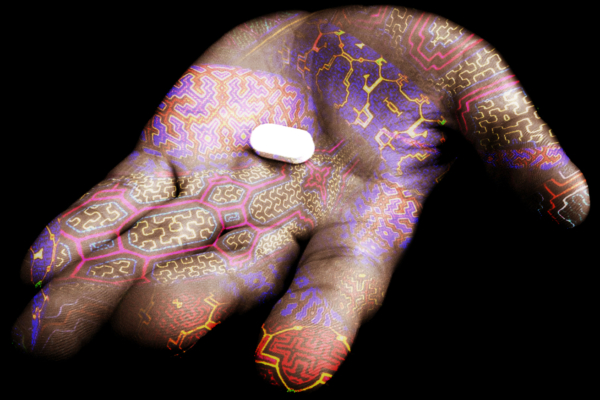
Compass Pathways just released new data that disrupts a long-held belief that selective serotonin reuptake inhibitor (SSRI) drugs should not be used in conjunction with psilocybin.
A study of 19 patients taking concomitant SSRI therapy with a single 25mg dose of the company’s novel therapeutic psilocybin formulation, called COMP360, saw comparable treatment outcomes to patients in the company’s phase IIb trial, in which patients were withdrawn from their SSRI prior to COMP360 psilocybin therapy.
“The results of this study challenge the widely-held belief that the use of SSRI medication together with psilocybin could interfere with psilocybin’s therapeutic effect,” says Guy Goodwin, Compass Pathways’ Chief Medical Officer. “Our findings provide a strong signal that COMP360 psilocybin therapy could be an adjunctive treatment to SSRI antidepressant as well as a monotherapy.”
It’s an important subject to be studied for the emerging psychedelics industry because SSRIs are most commonly prescribed to treat anxiety and depression — two major mental health issues that research has proven time and time again can be more effectively treated with the aid of psychedelics, including psilocybin, MDMA, ketamine, DMT, and LSD. It is estimated that 320 million people around the world suffer from major depressive disorder, and about a third of that population is not helped by existing therapies, so the race is on for a solution.
“For some patients with treatment-resistant depression, withdrawal is a difficult step even though, by definition, ‘treatment-resistant’ means that those antidepressants are not working. This is exactly why we conduct rigorous research to help guide our clinical trial design — including addressing barriers to adoption of COMP360 therapy,” adds Goodwin. “We are now looking forward to meeting with the FDA early in the new year in light of these new data to finalize our plans for the phase III program, which we expect to begin in Q3 2022.”
This comes just two weeks after MindMed released data supporting the same conclusion: pre-treatment with the SSRI escitalopram had no relevant impact on the positive mood effects of psilocybin.
“Two key questions arise around the use of psilocybin in patients undergoing antidepressant treatment,” said that separate study’s Principal Investigator, Dr. Matthias Liechti. “First, for safety reasons, should a patient stop using antidepressants before receiving psilocybin? Second, if there’s no safety risk, will the antidepressant reduce the patient’s response to psilocybin?”
The MindMed-sponsored study, carried out by the University Hospital Basel Liechti Lab, found that pre-treatment with escitalopram did not alter the pharmacokinetics of psilocin — the active compound that the psilocybin is converted into in humans by the process of dephosphorylation — nor did it alter QTc intervals (a measure of hearth rhythms) or circulating brain-derived neurotrophic factor (BNDF) levels before or after the administration of psilocybin.
“These results indicate that psilocybin may be dosed during escitalopram treatment without apparent impact on the effect of psilocybin,” added Dr. Liechti. “Thus, the study answers the first question and provides a positive indication for the second.”
Similarly, Compass Pathways found its 25mg COMP360 psilocybin therapy was generally well-tolerated when it was administered simultaneously with the patient’s SSRI treatment. There were no serious treatment-emergent adverse events (TEAEs) — meaning life-threatening or requiring medical attention — and no TEAEs related to suicidal ideation or behavior or intentional self-injury.




